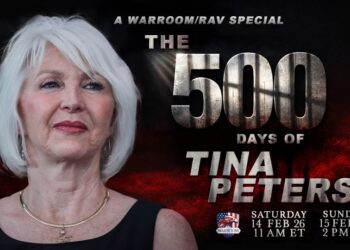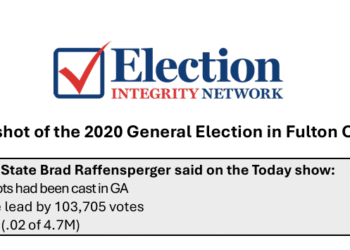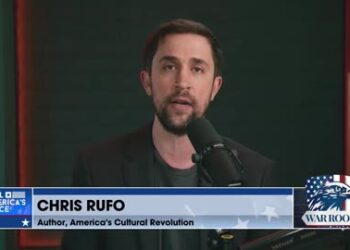This revealing interview with Steve Bannon was conducted by FRONTLINE on March 17, 2019, as part of their documentary series “America’s Great Divide: From Obama to Trump,” released in January 2020.
Through over two hours of footage, Bannon offers viewers an authentic look into the inner workings of a presidential campaign, providing electric details that make you feel as if you’re right there beside him and the foxhole by his side.
As one of our time’s most influential political figures, we are lucky to have had this glimpse into his thoughts. Bannon’s transparency, friendliness, openness, and wisdom shine through as he shares insights on topics ranging from his experiences growing up in the 1960s to leading a global populist movement against tyranny.
Despite what people claim are rough edges, Bannon’s journey from childhood in a Virginia neighborhood to becoming a top advisor to the President of the United States is heartwarming- like the American dream.
Throughout his ascent, Bannon’s innate desire to protect the underdog, obviously tenderly motivated to honor his Dad’s memory, and yet also symbolized by his fierce HoneyBadger persona, remains steadfast.
For a comprehensive understanding of Bannon’s perspectives and experiences, watching the entire interview is recommended.
“Because the media is dumb and lazy, they can only focus on one thing at a time.” Steve Bannon, Frontline PBS interview.
“Trump understands China better than anyone in DC,” Bannon told PBS.
In 2019, PBS described their documentary with Steve Bannon as someone who played an influential role in Donald Trump’s 2016 campaign and administration, reporting that they were revealing his “bombastic persona on the far right.”
PBS reported that as a policy adviser and speechwriter, Bannon was determined to implement Trump’s campaign promises, including the controversial executive order “restricting Muslims from entering the United States.”
PBS flaunted that Bannon was dubbed “Manipulator in Chief” by Time magazine, saying that Bannon wielded significant influence over Trump’s decisions. Despite leaving the White House in 2017, PBS claimed, amid fallout from Trump’s remarks on Charlottesville, Bannon remained a staunch promoter of Trump and his agenda.
Soon after leaving the White House, Bannon told the public he was going to “War” for Trump, and he has made good on that promise.
Here are just some key points from the PBS Frontline Documentary- there are so many that are notable:
- Bannon’s childhood in a predominantly black neighborhood during the ’60s instilled resilience and the importance of standing up for oneself.
- His Irish Catholic background provided stability and trust in institutions, shattered by the 2008 financial crisis.
- The crisis led to a loss of faith in American institutions, triggering fear and anger among the population.
- Bannon observed political shifts, including Sarah Palin’s emergence, tapping into public sentiment during the crisis.
- He criticizes elites for failing to anticipate the crisis and their subsequent handling of it, which disproportionately burdened working and middle-class Americans.
- Bannon recognized Breitbart News’s potential as a platform for populist, economic nationalist perspectives.
- After Andrew Breitbart’s passing, Bannon became executive chairman, shaping the site’s confrontational style and criticism of the political establishment.
- Breitbart News gained influence within conservative circles, contributing to the populist movement that propelled Trump to the presidency.
- Bannon identified a disconnect between the Republican Party’s base and its elite donor class, particularly on issues like trade and immigration.
- He aimed to reshape the party into a trustworthy populist entity by addressing cultural and economic concerns.
- Bannon actively supported primary challenges against establishment Republicans like Eric Cantor, advocating for candidates aligned with populist principles.
- Bannon began working with Trump in 2010 when he was impressed by his engagement and charisma during a meeting.
- Trump’s interest in politics grew over time, eventually leading to his announcement to run for president in 2015.
- Despite skepticism from media outlets and political observers, Trump gained traction, especially among grassroots conservative audiences.
- Bannon and Breitbart News provided fair coverage of Trump’s candidacy and recognized his potential to challenge the Republican establishment.
- Bannon highlights a fundamental divide between grassroots conservative voters and traditional conservative media outlets like Fox News, which he sees as aligned with elite interests.
- He criticizes Fox News for opposing Trump during the early stages of his candidacy, leading to a conflict with Breitbart News.
- Bannon views Trump’s candidacy as a rejection of establishment politics, including neoliberal economic policies and neoconservative foreign policy, leading to a clash between Breitbart and Fox News.
Resources:
Frontline PBS Interactive transcript for interview 1
The Undefeated Sara Palin movie
America’s Great Divide: Steve Bannon, 1st Interview | FRONTLINE





